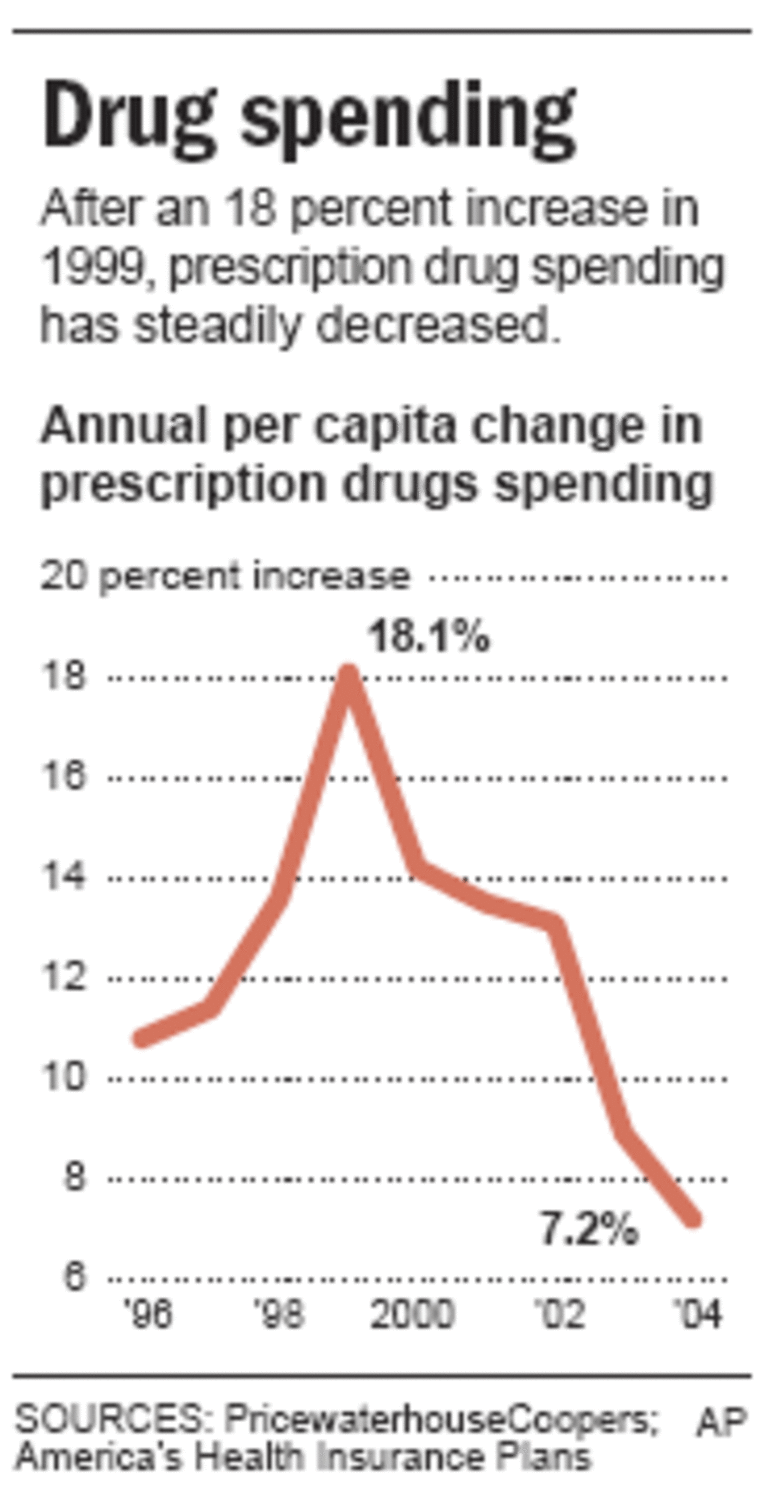Consumers are suddenly getting a break on the cost of generic drugs as discount retailers and some prescription benefit managers start programs that provide a host of popular medications at very low costs.
In the last month, Wal-Mart stores Inc. and Target Corp. have begun programs at pharmacies in their Florida stores, including Wal-Mart’s Sam’s Club, offering dozens of generic drugs for $4. Last May, Kmart Holding Corp.’s 1,100 stores began offering generics for $15 for a 90-day supply.
On Thursday, Medco Health Solutions, one of the largest U.S. prescription benefit managers, announced a plan targeting consumers indirectly through small- and medium-sized businesses struggling to offer employees prescription coverage.
Medco, based in Franklin Lakes, will offer its “Generics First” plan through partner health insurers for which it manages prescription claims and shipments from its mail order pharmacies. The plan kicks off this week through the first insurer to sign up, Nationwide Life Insurance Co., said John Driscoll, Medco’s group president for new business development.

“While many of the companies we’re targeting have little or no insurance plan today, they want it or may have had it in the past,” Driscoll said. “The biggest and fastest-growing need in the marketplace is for some sort of low-cost prescription plan.”
Medco’s insurance partners will market the plan through their agents to companies with up to about 500 workers.
Driscoll said the employers will get Generics First at about half the monthly premium cost for a traditional prescription plan, and their employees will get generic drugs for as little as $10 for a 90-day supply via mail order. The Medco plan covers 818 different medications, more than three times the number offered at Wal-Mart, and offers discounts on brand-name drugs and use of about 55,000 drug stores.
While the discount retailers are looking to boost customer traffic and sales of other products, Medco is aiming to sign up new customers in a market generally overlooked as its competitors focus on servicing plans for huge corporations and government agencies.
“I think plans like this will be attractive to small and midsize employers because Medco is offering both generic and brand-name drugs,” said Anthony Wisniewski, head of health care policy at the U.S. Chamber of Commerce.
Andrew Speller, health care services analyst at A.G. Edwards & Sons, said he expects all the prescription benefit managers will pursue programs like Medco’s — and many may be doing so quietly.
Medco and its competitors have long been pushing generic drugs — which bring a higher profit margin than brand-name ones — as a way for employers to quickly reduce costs. On average, generic drugs cost about 70 percent less than their chemically equivalent brand-name counterparts.
Zero co-pays
On Wednesday, AmeriHealth, a Blue Cross Blue Shield plan operating in New Jersey, Pennsylvania and Delaware, said it will offer plan members zero co-pays for some generic drugs from January through March through its new prescription benefit manager — an inducement for employers during the fall benefits sign-up period.
Some health insurers have similarly offered temporary zero co-pays.
And some pharmacy benefit managers have offered plan members coupons to get a generic drug for free for a couple of months to induce them to switch permanently, said Sean Brandle, national pharmacy practice leader at The Segal Co., an employee benefits consultant.
The steady growth of prescription plans that charge consumers far bigger co-pays for brand-name drugs than generics has been reducing annual increases in overall drug spending, noted Mohit Ghoose, spokesman for America’s Health Insurance Plans. Prescription drug spending rose about 14 percent in 2000, but only 7 percent in 2004, according to a 2005 study by the trade group.
Some consumers and doctors once were reluctant to use generics because newer, brand-name medicines were considered more effective, said Speller. Now, there are or will soon be generic versions of advanced drugs for everything from high cholesterol to allergies, he said.
In the next three years, about 70 drugs with combined annual sales of about $46 billion, including blockbusters such as cholesterol-fighter Lipitor, will lose patent protection.
Meanwhile, Wal-Mart plans to eventually expand its $4 generic program nationwide.
“We hope to roll out to as many states as possible by Thanksgiving,” said company spokesman Kevin Gardner.
Retail drugstore chains are not widely expected to follow suit to compete with the discount stores.
CVS Corp., which also owns the Eckerd chain, has said it doesn’t plan to match Wal-Mart’s move and stock analysts have said they don’t predict a big impact on chain pharmacies.